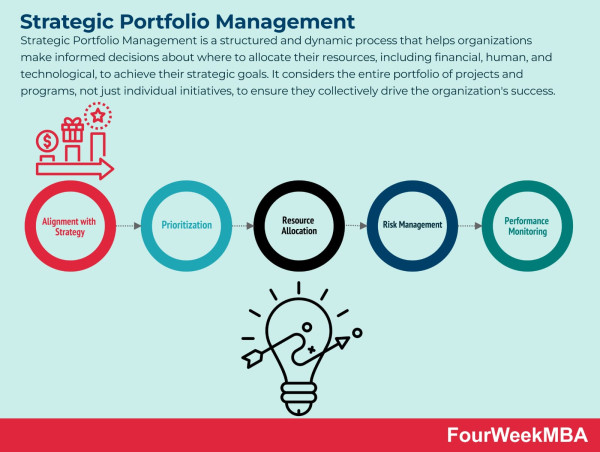Portfolio Management Insights: Al Sollami Discusses Building Resilient Investment Strategies for Long-Term Growth


United States, 25th Jun 2024 – Effective portfolio management is crucial for achieving long-term growth and sustainable success. Al Sollami, a seasoned expert in investment strategies, offers invaluable insights into the methodologies and practices that form the foundation of robust portfolio management. He explores essential principles for developing resilient investment strategies, navigating market volatility, and making informed decisions to ensure financial stability and growth. Whether you are a seasoned investor or new to the field, these insights provide a comprehensive guide to optimizing your investment approach for enduring success.
Understanding Portfolio Management
According to Al Sollami, portfolio management is the strategic selection and oversight of investments to achieve specific financial objectives. It is both an art and a science, blending quantitative analysis with qualitative judgment. Effective portfolio management maximizes returns while minimizing risk, aligning investment decisions with an investor’s risk tolerance, time horizon, and financial goals.
The Importance of Asset Allocation
One of the fundamental principles of portfolio management is asset allocation. This involves dividing your investment portfolio among asset classes, such as stocks, bonds, real estate, and cash. Asset allocation aims to reduce risk by diversifying investments across various asset classes that may react differently to market conditions. For example, stocks may offer higher potential returns but have higher volatility. On the other hand, bonds may provide more stability but with lower returns. A well-balanced asset allocation can help achieve a smoother investment journey.
Diversification for Risk Mitigation
Diversification is another critical strategy in portfolio management. By spreading your investments across a wide range of assets, sectors, and geographic regions, you can reduce the impact of any single investment’s poor performance on your overall portfolio. Diversification helps mitigate risk by ensuring your portfolio is not overly reliant on any particular asset or market. This way, even if some investments underperform, others may perform well, balancing the overall portfolio performance.
Setting Clear Financial Goals
Setting clear financial goals to build a resilient investment strategy is essential. These goals will serve as the foundation for your portfolio management decisions. Are you saving for retirement, a down payment on a house, or your children’s education? Each goal may require a different approach to asset allocation and risk tolerance. By defining your financial goals, you can create a tailored investment strategy that aligns with your needs and time horizon.
Assessing Risk Tolerance
Understanding your risk tolerance is crucial for effective portfolio management. Risk tolerance refers to your ability and willingness to withstand fluctuations in the value of your investments. Some investors are comfortable with higher levels of risk and volatility, while others prefer a more conservative approach. Assessing your risk tolerance involves evaluating your financial situation, investment experience, and emotional capacity to handle market swings. This assessment will guide your asset allocation and help you build a portfolio that matches your comfort level.
The Role of Investment Horizon
Your investment horizon, or the time you plan to hold your investments, plays a significant role in portfolio management. Longer investment horizons allow for greater flexibility in asset allocation, as short-term market fluctuations have less impact on the long-term growth potential of your portfolio. On the other hand, shorter investment horizons may require a more conservative approach to protect against market volatility. Understanding your investment horizon will help you make informed asset allocation and risk management decisions.
Regular Portfolio Rebalancing
Portfolio rebalancing is crucial to maintain the desired asset allocation over time. As market conditions change, the value of your investments may fluctuate, causing your asset allocation to deviate from its original target. Regular rebalancing involves selling overperforming assets and buying underperforming ones to restore the intended asset mix. This disciplined approach helps ensure your portfolio aligns with your risk tolerance and financial goals.
The Power of Compounding
Compounding is a powerful concept that can significantly impact your portfolio’s long-term growth. It refers to earning returns on both your initial investment and the accumulated returns over time. By reinvesting your earnings and allowing them to grow, compounding can lead to exponential growth in your portfolio.
The earlier you start investing and stay invested, the more you can benefit from the compounding effect. This highlights the importance of a long-term investment strategy and the value of patience and discipline in portfolio management.
Monitoring and Evaluating Performance
Regularly monitoring and evaluating your portfolio’s performance is essential for successful portfolio management. By tracking the performance of individual investments and comparing them to relevant benchmarks, you can identify areas of strength and weakness.
Performance evaluation allows you to make informed decisions about potential adjustments to your portfolio, such as reallocating assets or replacing underperforming investments. It also helps you stay on track toward achieving your financial goals and ensures that your investment strategy remains aligned with changing market conditions.
Leveraging Professional Guidance
While DIY portfolio management can be rewarding, seeking professional guidance from firms like Auctus Fund Management can provide valuable expertise and insights. Financial advisors and portfolio managers have the knowledge and experience to help you develop and implement a tailored investment strategy.
They can provide personalized recommendations, conduct in-depth research, and offer ongoing support to ensure your portfolio remains resilient and aligned with your goals. Collaborating with professionals can enhance your understanding of portfolio management and give you peace of mind, knowing that your investments are in capable hands.
Staying Informed and Educated
Investing constantly evolves, and staying informed and educated is crucial for successful portfolio management. Stay updated on market trends, economic developments, and investment strategies through reputable sources such as financial news, books, and online courses.
Continuous learning allows you to adapt to changing market conditions, identify new opportunities, and make informed decisions about your portfolio. Expanding your knowledge and staying engaged in the investment landscape can enhance your portfolio management skills and increase the likelihood of achieving long-term growth.
Final Thoughts
Effective portfolio management is a dynamic and ongoing process that requires attention, discipline, and continual learning. By setting clear financial goals, understanding your risk tolerance, and considering your investment horizon, you can develop a strategy that supports your financial aspirations. Regularly monitoring and rebalancing your portfolio ensures it aligns with your desired asset allocation and risk levels.
The power of compounding underscores the importance of a long-term perspective while leveraging professional guidance, such as that from Al Sollami, can provide additional expertise and peace of mind. Staying informed and educated empowers you to make informed decisions and adapt to evolving market conditions. A well-managed portfolio is critical for achieving financial security and long-term growth.
Media Contact
Organization: Alfred Sollami
Contact Person: Alfred Sollami Team
Website: https://alfredsollamischolarship.com/
Email: Send Email
Country: United States
Release Id: 25062413509
